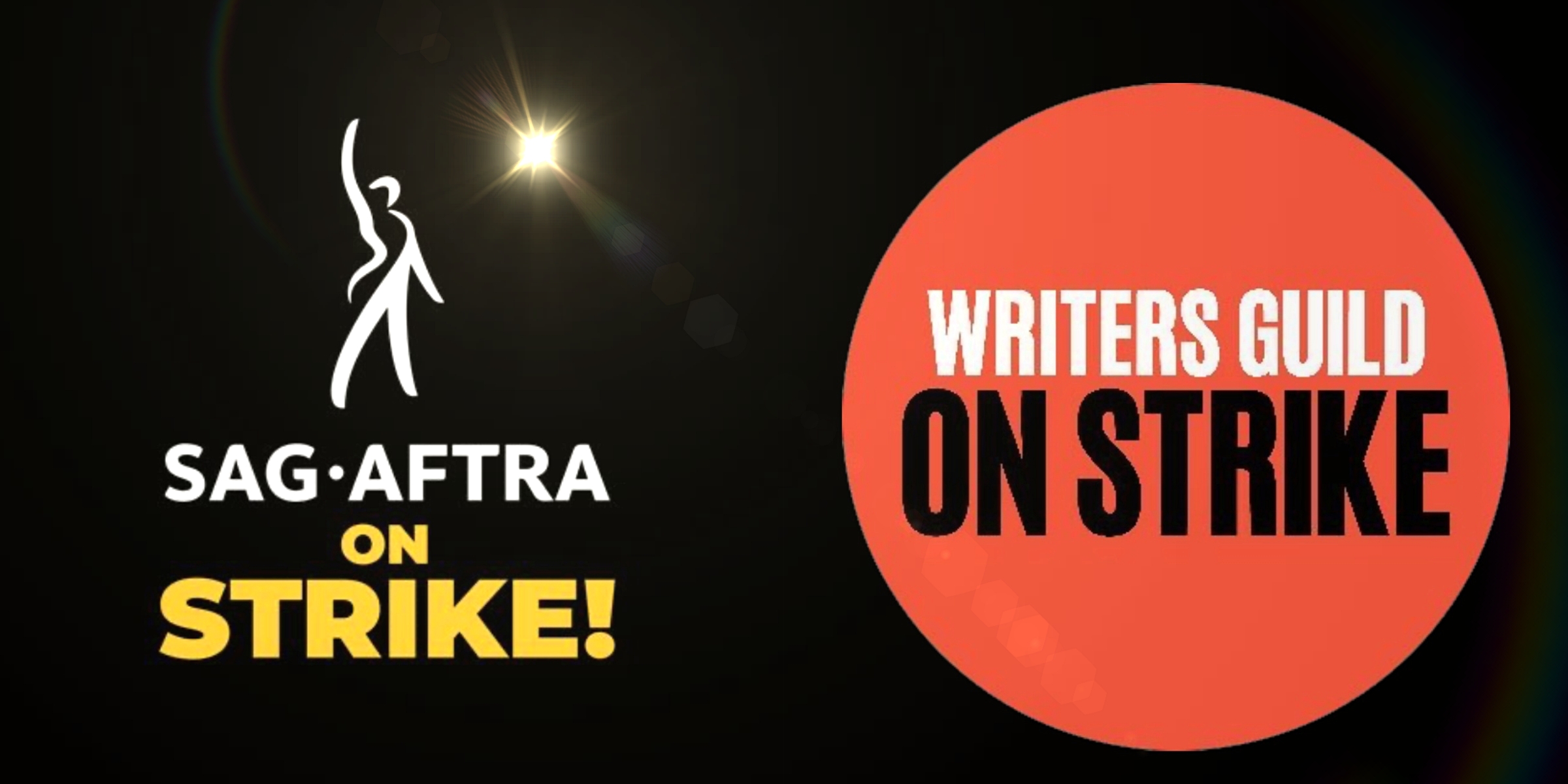WGA And SAG-AFTRA Strike: Hollywood Faces Unprecedented Production Shutdown

Table of Contents
The Core Issues Fueling the WGA and SAG-AFTRA Strike
The WGA and SAG-AFTRA strike isn't simply about pay; it's about a fundamental restructuring of the relationship between labor and the entertainment industry in the digital age. Several core issues fuel this unprecedented walkout.
Fair Compensation and Residuals in the Streaming Era
The shift from traditional television models to streaming has dramatically altered the compensation landscape for writers and actors. While streaming services boast massive subscriber numbers and generate billions in revenue, the compensation models haven't kept pace. The traditional system of residuals – payments made to writers and actors each time their work is aired – has been significantly diminished or completely eliminated in many streaming deals. This lack of transparency and fair payment is a major point of contention. Successful campaigns in other unions, such as those advocating for fair wages in the gig economy, have provided a blueprint for the WGA and SAG-AFTRA's demands.
- Diminished residuals from streaming platforms. Unlike network television, where residuals are paid for each broadcast, streaming deals often offer upfront payments with little to no backend participation.
- Lack of transparency in streaming viewership data. Unions are demanding access to accurate viewership data to demonstrate the value of their members' contributions and to negotiate fairer compensation based on actual performance.
- Demand for fairer profit-sharing models. The current profit-sharing models often favor studios and streaming platforms, leaving writers and actors with a disproportionately small share of the profits.
- Inadequate minimums for streaming work. The minimum pay for streaming projects is often significantly lower than traditional television or film work, despite the increased demand and widespread consumption.
The Rise of AI and its Impact on Writers and Actors
The rapid advancement of artificial intelligence (AI) poses a significant threat to the livelihoods of writers and actors. The unions are deeply concerned about the potential for AI to replace human creativity and talent, raising ethical concerns and highlighting the potential for exploitation. The use of AI-generated scripts, characters, and even performances represents a major challenge to the established industry norms and necessitates a robust response.
- Concerns about AI-generated scripts and performances. The potential for AI to generate scripts and even create realistic digital performances threatens to devalue the unique skills and creativity of human writers and actors.
- Demand for safeguards against AI replacing human talent. The unions are demanding that AI be used ethically and responsibly, with appropriate safeguards in place to protect human workers from displacement.
- Need for industry-wide standards on AI usage. Clear guidelines and regulations are required to govern the use of AI in the entertainment industry, ensuring fairness and preventing exploitation.
- Copyright and ownership issues surrounding AI-generated content. The legal implications of AI-generated content, including copyright and ownership, are still largely undefined and need clarification.
Working Conditions and Workplace Safety
The demanding schedules and long working hours in the entertainment industry have long been a point of contention. The WGA and SAG-AFTRA strike seeks to address these issues, demanding improved working conditions and greater emphasis on workplace safety. Recent incidents on film sets have underscored the need for enhanced safety regulations and better protection for all crew members.
- Excessive working hours. Writers and actors often work excessively long hours, impacting their health and well-being.
- Inadequate rest periods. Insufficient rest and downtime negatively affect performance and overall health.
- Safety concerns on film sets. Accidents and injuries on film sets are not uncommon, highlighting the need for better safety protocols and training.
- Demands for better health insurance and pension plans. The unions are seeking improved benefits packages to protect workers' health and financial security.
The Economic Impact of the WGA and SAG-AFTRA Strike
The WGA and SAG-AFTRA strike has had a significant and far-reaching economic impact, extending far beyond the striking unions themselves.
Production Delays and Cancellations
The strike has caused widespread delays and cancellations of film and television productions. This ripple effect impacts studios, production companies, and numerous associated businesses, leading to substantial financial losses. Major projects, from tentpole films to popular television series, have been indefinitely postponed, resulting in significant financial setbacks for the industry.
- Delays in film and television production. Numerous productions have been halted, creating substantial delays in release schedules.
- Cancellation of planned projects. Some projects have been entirely cancelled due to the uncertain timeline of the strike.
- Loss of revenue for studios and production companies. The financial impact on studios and production companies is substantial, impacting both current projects and future planning.
- Negative impact on local economies. The strike significantly impacts local economies reliant on film and television production, including businesses providing catering, transportation, and other services.
Impact on Employment Across the Industry
The economic consequences extend far beyond the striking actors and writers. Thousands of crew members, technicians, and other industry professionals have experienced job losses, creating widespread economic hardship. Freelance workers, who form a large part of the industry's workforce, are particularly vulnerable, lacking the safety net of consistent employment.
- Job losses for crew members, technicians, and support staff. These individuals are directly affected by the halt in production, facing unemployment and financial uncertainty.
- Economic hardship for freelance workers. Freelance workers, including grips, gaffers, and other crew members, are particularly vulnerable due to their lack of consistent employment.
- Potential for long-term damage to the industry's workforce. The prolonged strike could lead to a skilled workforce exodus and damage to the industry's long-term prospects.
- Reduced economic activity in related industries. Businesses reliant on the entertainment industry, such as restaurants and hotels, are also experiencing reduced economic activity.
Potential Outcomes and Future of the WGA and SAG-AFTRA Strike
The potential outcomes of the WGA and SAG-AFTRA strike are multifaceted. Successful negotiations leading to a new contract are, of course, the desired outcome. However, the possibility of a prolonged strike or alternative resolutions, such as partial settlements or legal challenges, cannot be discounted. The long-term effects on the industry's labor relations and the power dynamics between unions and studios will be significant, setting precedents for future negotiations.
- Possible negotiation outcomes and their implications. A successful negotiation would lead to new contracts addressing the core issues, while a prolonged strike could result in further economic hardship and lasting damage.
- Long-term effects on the industry's labor relations. The strike's outcome will significantly impact the future relationship between unions and studios, shaping future negotiations and contracts.
- Impact on future contracts and negotiations. The precedents set by this strike will influence future contract negotiations within the entertainment industry.
- Potential for legal challenges and legislative intervention. Legal challenges and legislative intervention remain possibilities, further complicating the situation.
Conclusion
The WGA and SAG-AFTRA strike represents a critical juncture in the entertainment industry. The core issues – fair compensation, the looming threat of AI, and the need for improved working conditions – demand systemic change to ensure a sustainable and equitable future for writers and actors. This unprecedented situation requires careful consideration from all stakeholders. Staying informed about the developments of the WGA and SAG-AFTRA strike and its potential ramifications is crucial for everyone invested in the future of entertainment. Continue to follow the ongoing developments to understand the lasting implications of this pivotal moment in Hollywood history.

Featured Posts
-
 Dong Duong Hotel Hue Elevated Hospitality With Fusion
Apr 26, 2025
Dong Duong Hotel Hue Elevated Hospitality With Fusion
Apr 26, 2025 -
 Getting My Hands On A Switch 2 The Game Stop Preorder
Apr 26, 2025
Getting My Hands On A Switch 2 The Game Stop Preorder
Apr 26, 2025 -
 Shedeur Sanders A Top 3 Nfl Draft Prospect Giants Rumors Fuel Speculation
Apr 26, 2025
Shedeur Sanders A Top 3 Nfl Draft Prospect Giants Rumors Fuel Speculation
Apr 26, 2025 -
 New Marine Security And Surveillance Vessel For Royal Netherlands Navy A Fugro Damen Collaboration
Apr 26, 2025
New Marine Security And Surveillance Vessel For Royal Netherlands Navy A Fugro Damen Collaboration
Apr 26, 2025 -
 Chelsea Handler Netflix Special Trailer And Release Date Announced
Apr 26, 2025
Chelsea Handler Netflix Special Trailer And Release Date Announced
Apr 26, 2025
